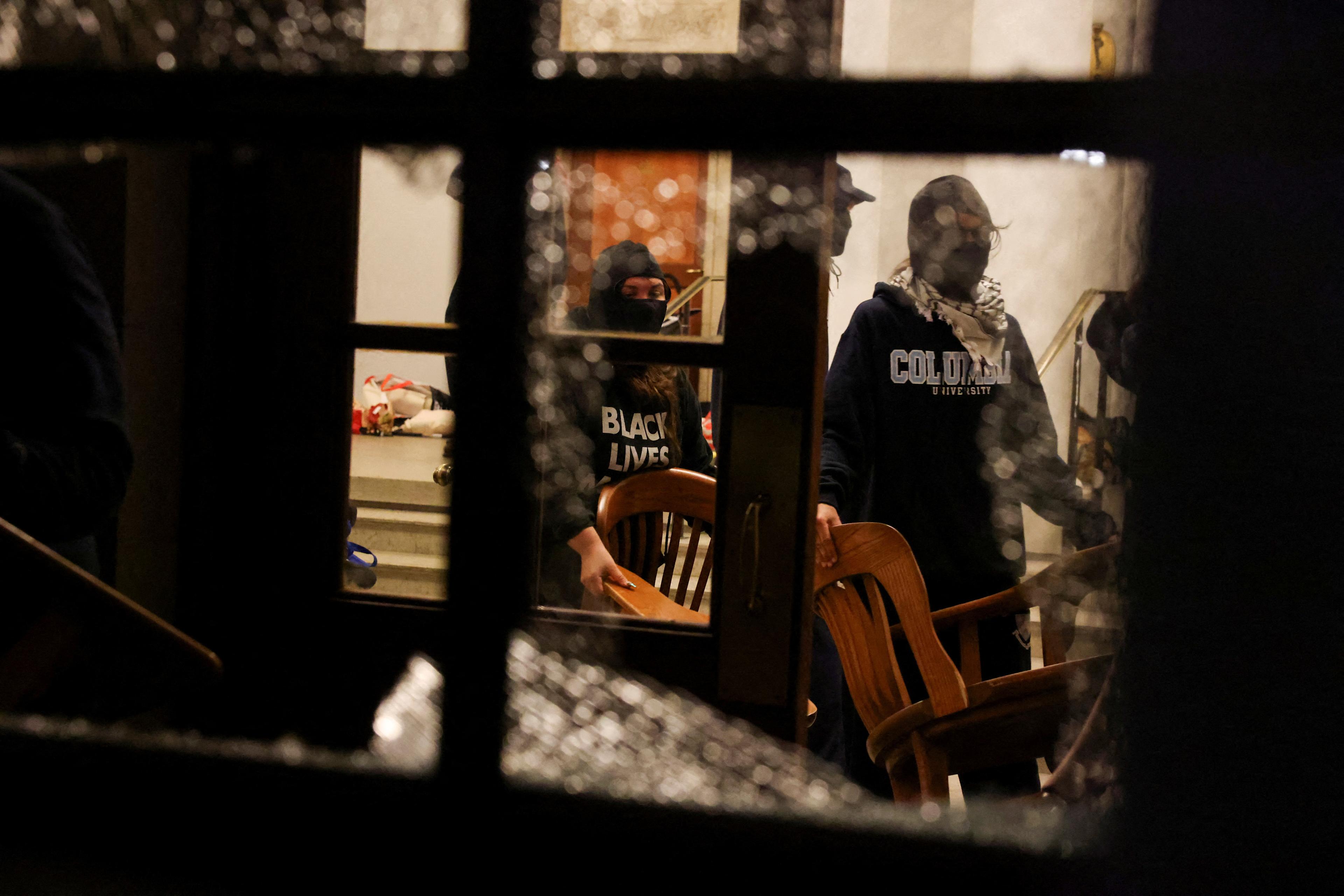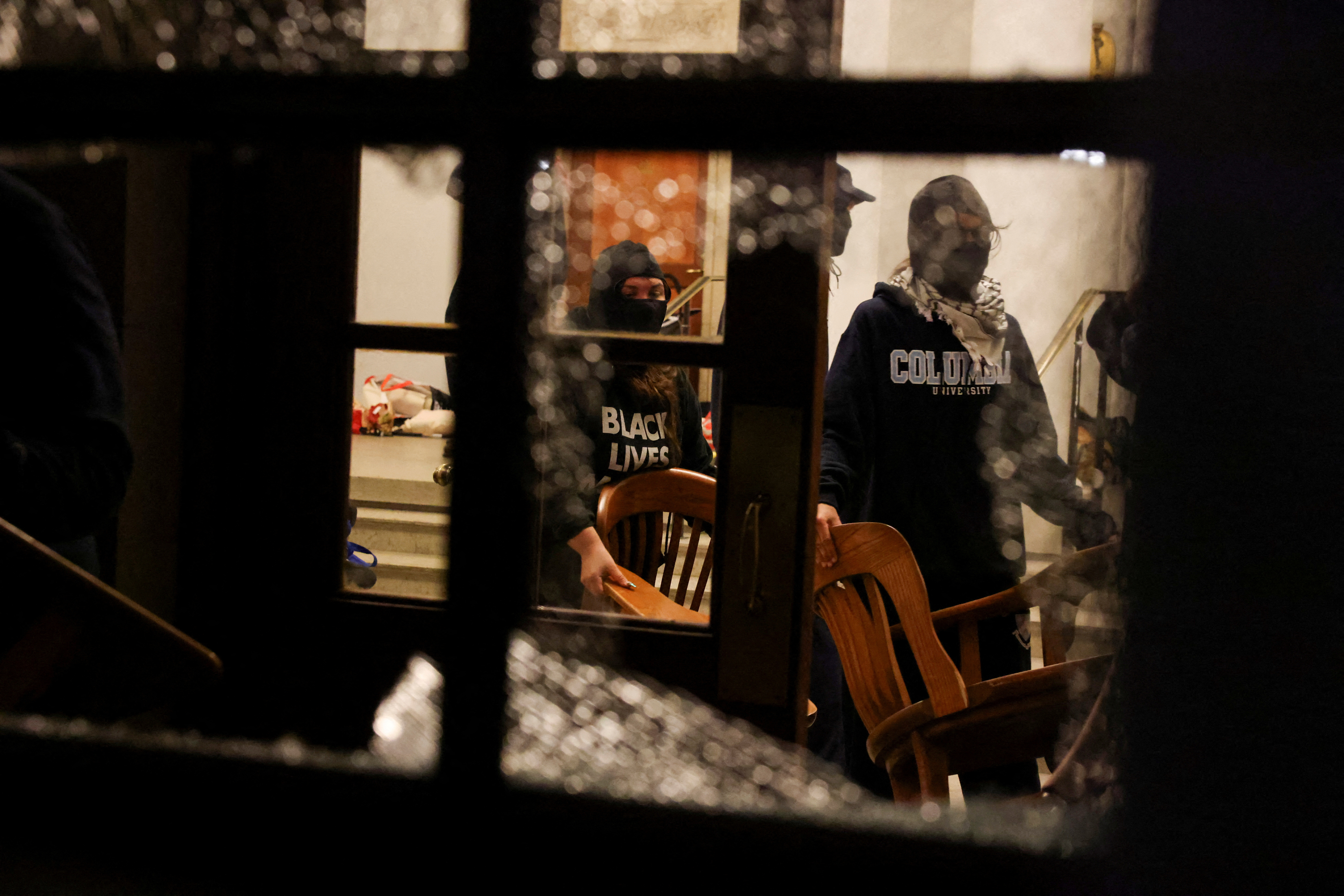Sabotage and Self-Organization
Franco ‘Bifo’ Berardi
The following interview was conducted on May 1st 2024 by Chandler Dandridge, a psychotherapist, writer, and adjunct faculty member in the Graduate School of Education and Psychology at Pepperdine University.
Other languages: Español, Türkçe, Ελληνικά
Twenty-four hours before the NYPD stormed the campus, students at Columbia University occupied Hamilton Hall, linking their protest even more tightly to 1968’s anti-war protests. As someone who was active in the student protests of 1968 in Bologna, how do you see the connections between now and then?
The similarities between the current wave of pro-Palestine protests and what happened in 1968 are remarkable. However what is most important is not the behavioral similarity but the different context, and the different expectations of the students who are involved in these mobilizations.
Since the beginning of the Israeli genocidal revenge, it has been obvious that the majority of young people have taken the side of the Palestinian victims. Everywhere, on social networks, in the streets, in the universities, on the walls of cities worldwide, the words “Free Palestine” have been repeated a billion times over. This is an ethical response to the Zionist racism and colonialism. From an ethical point of view, the present situation is a watershed: the separation between the forces of white supremacy (the Northern imperialists) and the rest of mankind is irreversible. But the ethical majority has not yet managed to become a political force.
From this point of view, things today differ from 1968. The anti-war movement of 1968 turned into a political force that transformed social relations, up to a certain point. But also the expectations differ from 1968. When students demonstrated against the Vietnam war, we were expecting the reversal of the rapport de force between the imperialist front and the anti-colonial front. The identification with the Vietcong implied an identification with socialism, with emancipation and so on…. This was partially a deception, of course, but we identified with a positive possibility of changing social relations and of defeating imperialism.
Can we say the same about the present identification with Palestine? I don’t think so. The students who demonstrate and occupy against the US-Israeli genocide do not identify themselves with Hamas, obviously. They do not expect any brilliant future, any socialist future, any social emancipation from the Palestinian resistance. So what kind of identification, what kind of expectation can we see in the present wave of protest?
In my opinion students are identifying with despair. Despair is the psychological and also cultural trait that explains the wide identification of young people with the Palestinians. I think that the majority of the students today are consciously or unconsciously expecting the irreversible worsening of the conditions of life, irreversible climate change, a long lasting period of war, and the looming danger of a nuclear precipitation of the conflicts that are underway in many points of the geopolitical map. This, in my opinion, is the main difference in comparison with the 1968 movement: no reversal of the rapport de force is in sight.
Much of the student protests is centered around divestment, which seems to pack a potentially revolutionary and anticapitalist potential. Have the students impressed you with their discipline and demands?
This point is extremely interesting. The implications of the divestment campaign may become quite radical, in the next period. However, as far as I can understand — and I may be wrong, because I do not know enough of the internal debates that have prepared the current uprising — at the present the word “divestment” refers to the special case of Israeli, as a rogue state that is pursuing a program of ethnic cleansing, apartheid and genocide. It is not yet (as far as I know, I repeat, and I hope to be contradicted by the coming developments) a project of general divestment, implying the abandonment of the economic policy based on growth.
In the culture of 1968, the idea of divestment did not exist; the perception of the environmental catastrophe was likewise very weak. Nowadays these concerns may give way to a movement of transformation of the relation between knowledge, production, consumption, and economic choice. In the last fifty years students have been the most interesting political actors because they are not only students, but also prospective cognitive workers. But we have been unable to transform the political mobilization of students into a social subject, into a permanent process of transformation of the relation between knowledge, technology and production.


Do you remember the talk that Mario Savio gave to the Berkeley students on December 2nd, 1964? In that occasion Mario Savio said the following words:
There is a time when the operation of the machine becomes so odious, makes you so sick at heart, that you can't take part! You can't even passively take part! And you've got to put your bodies upon the gears and upon the wheels...upon the levers, upon all the apparatus, and you've got to make it stop! And you've got to indicate to the people who run it, to the people who own it, that unless you're free, the machine will be prevented from working at all!
In those words we hear an ethical refusal of being the instruments of imperial violence, but also the anticipation of a possible process of self-organization of cognitive labor. This possibility has never been implemented. The students have never been able to transform their mobilization, which is intrinsically linked to a temporary condition, into a permanent organization of cognitive workers. This has been the main weakness of the student movement: it was and still is the main front of opposition, but it is unable to permanently transform the social relationship at the level of production and reproduction. What I mean is, students are available to be mobilized during their stay in the universities, but they have been unable (so far) to create forms of permanent autonomy inside the cycle of cognitive labor.
How are these protests on US campuses viewed in Europe? Do you get the sense that there is a similar fervor for such action at European universities? Are the universities even invested in Israeli and war profiteering in similar ways?
Two days ago I was invited to give a talk in the main hall of the Academy of Bologna. The subject of my talk was the war in Europe, the genocide in Palestine, and the mobilization of the American universities. The hall was incredibly crowded, the students were emotionally stirred and their interventions were aligned with the positions expressed by the students of Columbia University, and so on. However, when I said: it is time to occupy the Italian universities, they did not react; I felt that they are not yet ready to join the Columbia movement.1
The sense of self-distrust is deeply inscribed in the culture of Italian students, and depression is the prevailing sentiment, although I’m persuaded that depression can be transformed into a wide movement of active desertion from war. But I do not expect much from European universities, even if I hope to be proven wrong.
We are speaking on May Day, when the Palestinian General Federation of Trade Unions — Gaza called for a strike. The US group Writers Against the War on Gaza echoed their call. What does it mean to connect such collective labor action to the genocide in Gaza?
This is rhetorical. May Day is just one more rhetorical day, at least in Europe. The need for a connection between ethical upheaval against imperialism and labor movement should go much deeper. What we need is not (only) one day of demonstration, or a symbolic day of strike. What is needed is the consciousness of the crucial role of cognitive workers in the present process of capitalist production, of the possibility of reversing the main trends of technological development.
The mobilization of a small number of Google workers against the implication of Google in the Israeli genocide is much more important than one day of symbolic solidarity. We don’t need symbolic solidarity. We need a process of self organization of cognitive workers against the war. Cognitive workers are simultaneously complicit with semiocapitalist power, and the victims of it (precarity, mental suffering, loneliness). This is the most important contradiction of our time, in my opinion. In order to move beyond an ethical symbolic mobilization (which nonetheless is urgent and important in itself), we should disentangle the potency of social subversion that is implicit in the post-student life, in the activity of cognitive workers.
What are the lessons to be learned from 1968? Do you have any advice for student protestors in the USA based on your experience of these struggles?
I have no advice to give. I have never trusted political advisors when they are not part of the mobilization. However, there is a lesson that I draw from the 1968 movements, and I want to extend this lesson to the present: The university (and the educational system in general) is a place for accessing knowledge, and also for producing knowledge. But it is also an institution that can directly and indirectly influence the semio-factories, by which I mean, the big companies that produce technology, that irradiate communication. What is most urgent now, and in the coming future, is to extend the refusal that comes from the universities (refusal of the utter dehumanization produced by corporate capitalism and the military system) to the semio-factories.
Sabotage of the chain of production of mass-(in)culture, sabotage of the chain of production of military artificial intelligence. Sabotage and self-organization. Sabotage of the military use of knowledge. And finally, to organize the cognitive energies into a project of autonomization of social life from capitalism. I know, these are big projects…too big, maybe. However the occupation of the universities is the best environment to launch big projects, and to self-educate people to self-reliance and autonomy.